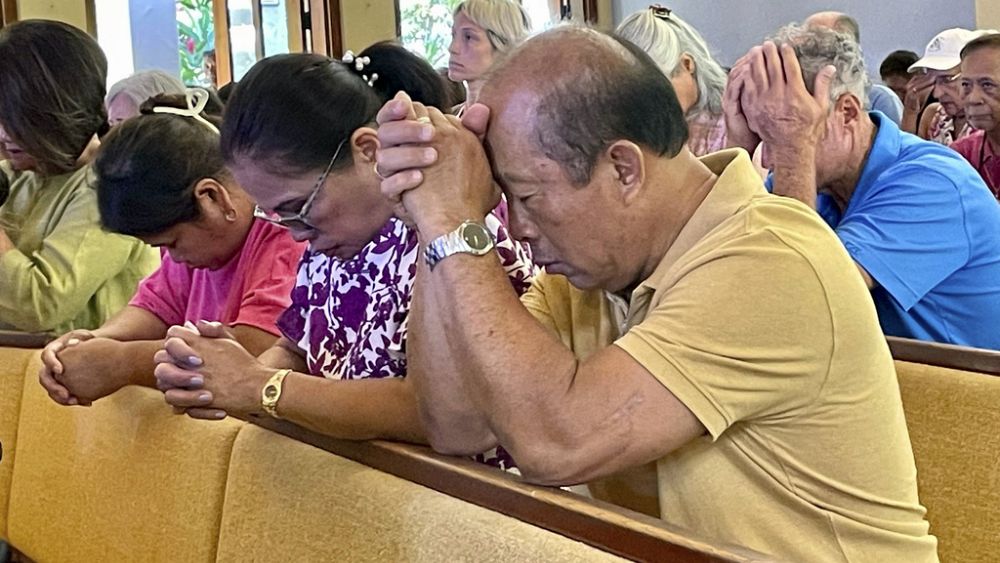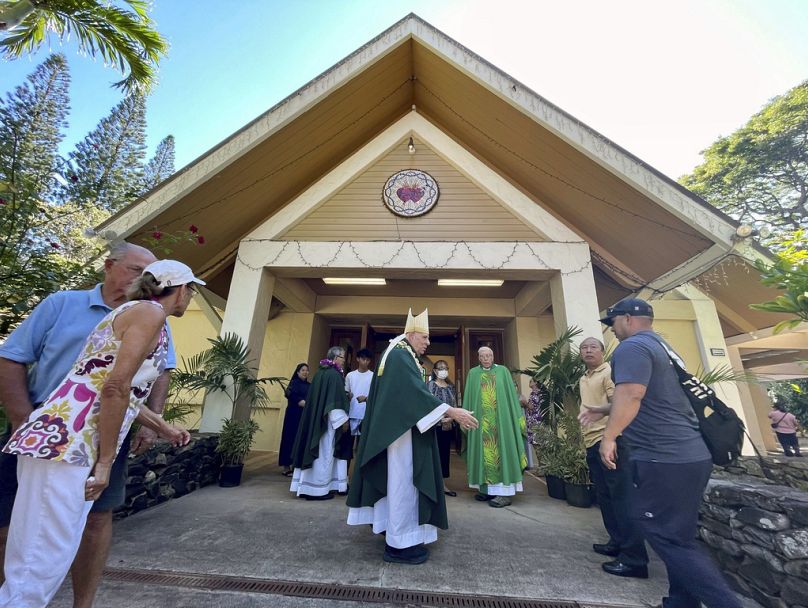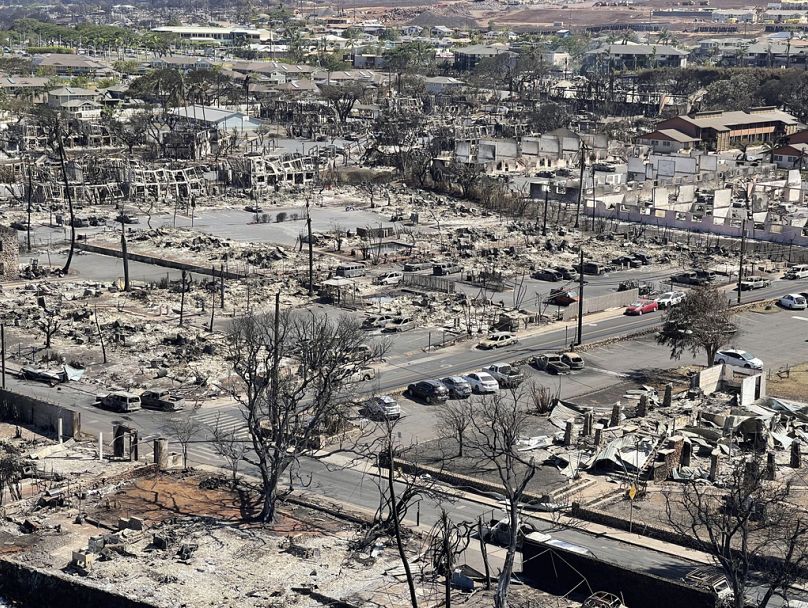
But many others are already confronting a painful reality. Their loved ones did not make it out alive.
 ADVERTISEMENT
ADVERTISEMENTAt a Sunday Mass at a church in Kapalua, the Most Rev. Clarence “Larry” Silva, the Roman Catholic Bishop of Honolulu, appealed to sombre parishioners not to abandon their faith.
“If we are angry with God we should tell him so. He can take it,” he said in his sermon, adding later that “God loves us in tragedies and good times and bad times.”
Taufa Samisoni sat in the pews with his wife, mournful over the loss of an aunt, uncle, a cousin and grandnephew.

They tried to flee but did not get far, engulfed in an inferno while in their car just outside their home.
His wife, Katalina, in a quivering voice, spoke about the faith that allowed the Apostle Peter to walk on water. Like Peter, she said, “we will get to shore.”
Thus far, the remains of more than 90 people have been pulled from flattened homes, blackened cars or on streets just a few strides from their front doors – unable to outrun the smoke and flames that were just too fast and too ferocious.
On Saturday, Gov. Josh Green told residents to brace for more grim news. Crews and cadaver-sniffing dogs will certainly find more of the missing within the destruction, he said. He predicted the tragedy could rank as Hawaii’s deadliest natural disaster ever.
It was an ominous signal of the anguish to come in the months ahead. Mourners will file into houses of worship, then somberly gather at gravesites to say final goodbyes. The scenes will be repeated over and over – though how many times no one yet knows.
Maui officials declined to respond to phone calls, text messages and emails requesting information about how and where the county are sheltering the recovered remains. Nor did they answer questions about whether the county has the facilities and resources to handle the rising number of fatalities.
With just one hospital and three mortuaries, it remains unclear where all those corpses will be temporarily stored and how soon they will be released to family.
“Funerals are not yet on the horizon,” Silva told The Associated Press. “Even in the best of times, Hawaii has the custom on having funerals anywhere from a month to six months after the death.”
 ADVERTISEMENT
ADVERTISEMENTAmid Lahaina’s devastation, the Maria Lanakila Catholic Church itself suffered smoke damage but its convent and school were destroyed.

Pope Francis acknowledged the tragedy during his Sunday address to people gathered at the Vatican’s St. Peter’s Square, saying that he “desires to assure my prayers for the victims of the fires that devastated the island of Maui.” Locally, amid the gloom, faith leaders were focused on providing community and spiritual hope for congregants who lost homes and livelihoods. Some vowed to hold services on Sunday.
“We’re hoping our church can be a beacon of hope when the time comes,” the Rev. Barry Campbell said from Kihei, where his family has stayed since escaping Lahaina.
He plans to hold services as soon as it’s possible at Lahaina Baptist Church, which remained standing, even if buildings around it were razed down to their slabs.
“That’s the thing our people really need,” Campbell said. “To be together.”
 ADVERTISEMENT
ADVERTISEMENTFor now, many faith leaders are mounting relief efforts, including turning houses of worship into temporary shelters. They are also delivering supplies to those in need, and doing their best to help families connect with friends and relatives across an area with intermittent power and without reliable cellphone services.
The Church of Latter-day Saints in Maui said five of its members died in the fires, including four from the same family. In the fire’s aftermath, the church has transformed two meeting houses into shelters.
The Rev. Jay Haynes, the pastor at Kahului Baptist Church, said recovery will take many years.
“Our people just need to keep going,” he said.
The Chabad of Maui – which was under evacuation orders — was spared and is now sheltering evacuees, said Rabbi Mendy Krasnjansky. As the fire raged, some of the faithful stood ready to move the temple’s holy scrolls to safer grounds.
 ADVERTISEMENT
ADVERTISEMENT“We don’t know why things happen, but we believe we have the strength to soldier on,” he said.
That was the case for Zac Wasserman who has been frantic about finding his uncle, David Hawley. Now in his 70s, his uncle uses a wheelchair after a stroke left him mostly immobile more than a year ago.
“We just don’t know where he is, which is definitely scary,” said Wasserman, who lives in Southern California.
Even before the fires, he wasn’t always good about keeping in touch. Maybe it was just another one of those cases.
Phone call after phone call from Wasserman, his siblings and cousins have gone unanswered.
“I still have hope,” he said, “unless somebody tells me otherwise.”
Then after sharing his anguish, his family tried once more.
This time there was an answer. Their uncle was alive.





